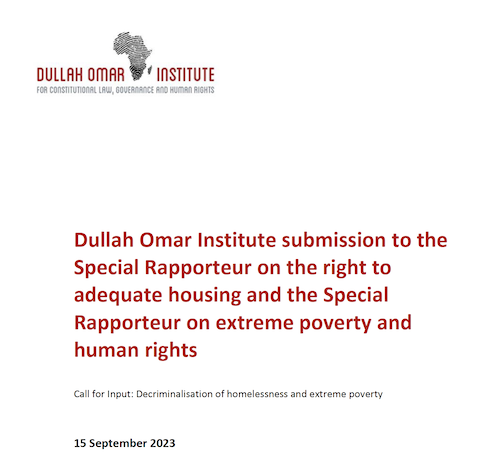In September 2023, the Dullah Omar Institute made a submission in response to the call from the UN Special Rapporteur on the right to adequate housing and the Special Rapporteur on extreme poverty and human rights. The submission was based on ACJR’s foci of work on sub-national governments and the criminalisation of poverty and status. The submission provided a brief overview of the challenges at a subnational government level concerning public spaces, informal work based on a report on Public Spaces and Informal Work. The submission noted how laws and policies at sub-national government level tend to restrict access to and ability of people to earn a livelihood or perform life-sustaining activities in public spaces. Amongst other points, it was highlighted that the manner in which authorities formulate and implement public policy should include involvement of the people mostly impacted by their decisions. It was further noted that these laws and policies are often enforced in a harsh and brutal manner particularly to waste pickers, touts and street vendors by subnational government law enforcement agencies.
The submission recommends that sub-national governments should consider public participation as fundamental to the law and policy making process and that policies should be designed around outcomes, and that decisions of policy-makers should be based on the best available evidence. Moreover, it is recommended that while the enforcement of regulations and by-laws in public spaces is useful in ensuring sanitary and safe public spaces, it should be proportionately done by taking into consideration those living and working within those spaces by encouraging less of a reliance on criminal justice systems by addressing socio-economic challenges and building compliance to the law through risk prevention, public education and awareness as well as constructive dialogue with those most affected.


